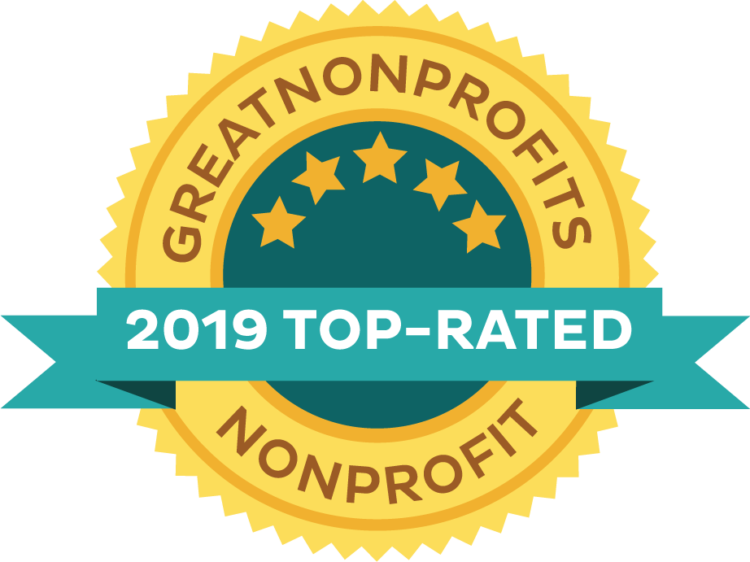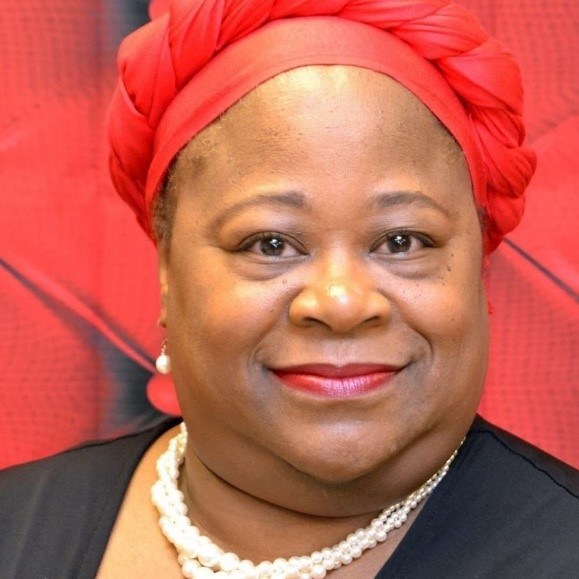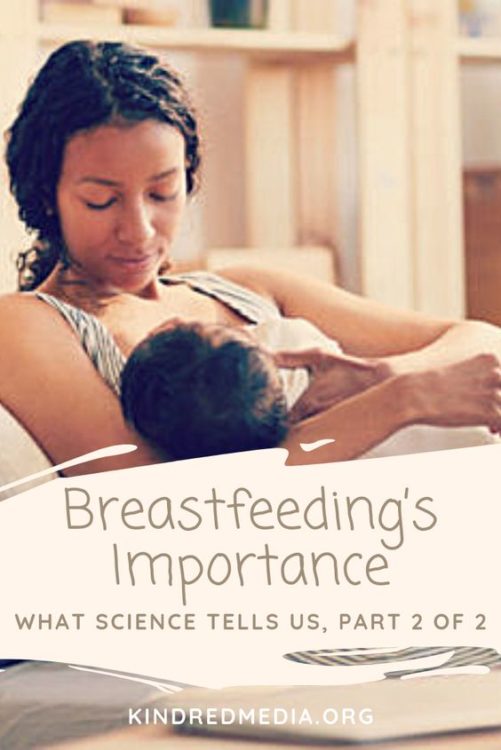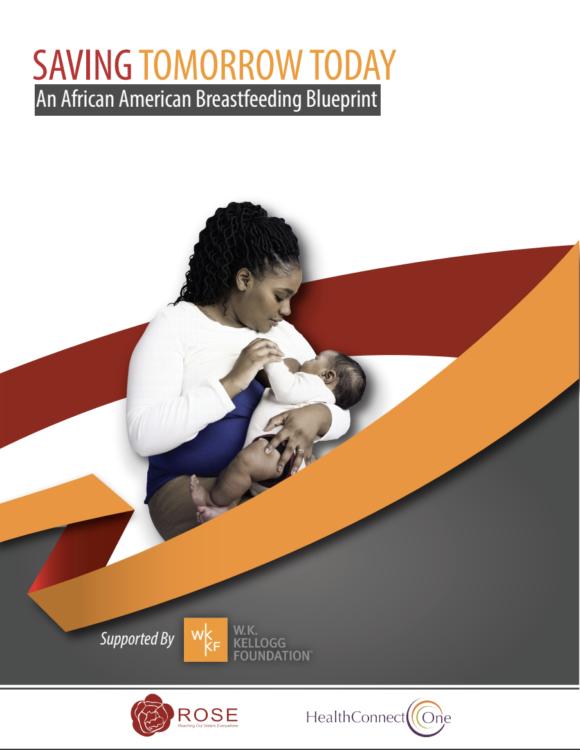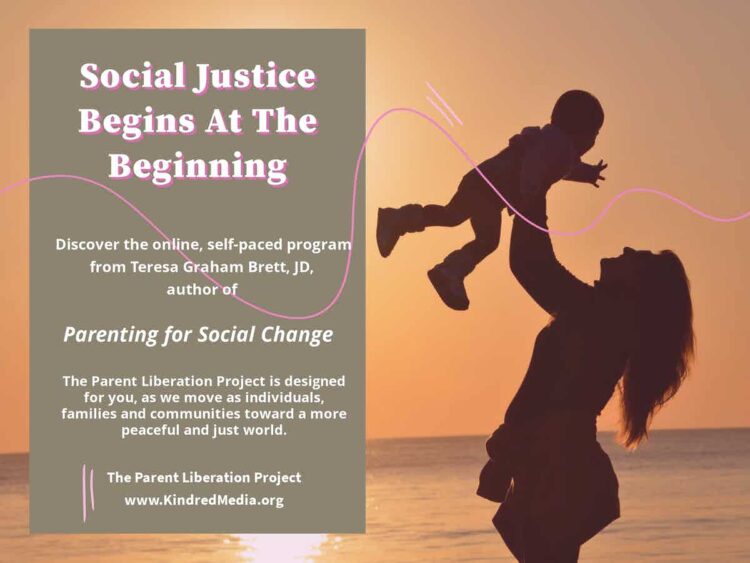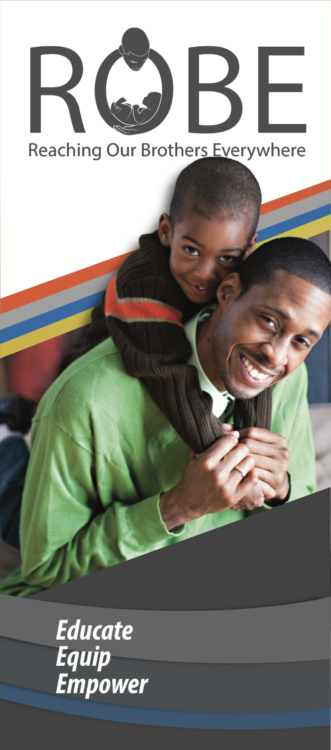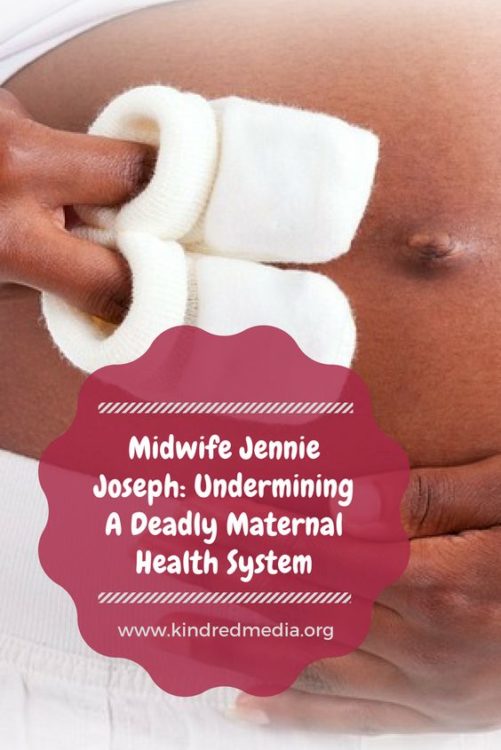About Meet the Men of ROBE: Standing at the Intersection of Fatherhood, Infant Mortality, Breastfeeding, and Social Justice
Part II in Kindred’s Series
In this series, Lisa Reagan talks with the Wisdom Council members of Reaching Our Brothers Everywhere, ROBE, invites Kindred listeners and readers to hear their personal stories and understand the critical need for ROBE’s vision for black fathers. In this interview, Kimarie Bugg, DNP, founder of Reaching Our Sisters Everywhere, ROSE, and the inspiration for the founding of ROBE, shares her personal journey and vision for improving black families’ health outcomes through diversity, equity and inclusivity training for professionals.
In Part I, III and IV of the series, ROBE Wisdom Council members share their extraordinary stories of creating a new “generative” path to fatherhood, one that prepares black fathers to become crucial advocates and supporters “to increase breastfeeding rates and decrease infant mortality rates within African-American communities.”
While ROBE’s wisdom council members seek to “educate, equip and empower” new fathers, they, and the fathers they serve, face racial and gender inequality, structural racism, and a persistent cultural myth of black fathers as absent fathers – a damaging and racist mythology contradicted by CDC data that shows:
- Most black fathers live with their children. There are about 2.5 million who live with their children, and 1.7 million who don’t, according to the CDC.
- Black dads who live with their children are actually the most involved fathers of all, on average, a CDC study found.
For more academic insights into breaking stereotypes of black fathers, see Understanding the Positive Impacts of African American Fathers, or any work by Waldo E. Johnson, Jr., who has been deeply immersed in the study of fathers and families for over two decades.
About Kindred’s Editor: Oral history has its roots in the sharing of stories throughout the centuries. It is a primary source of historical data, gathering information from living individuals via recorded interviews. Lisa Reagan’s interviews of thought-leaders, researchers, activists, parents and professionals serves as an oral history of the organic conscious parenting/family wellness movement in the United States and globally since 1999. Follow her podcasts, and this series, on Apple Music/iTunes, SoundCloud and here on Kindred.
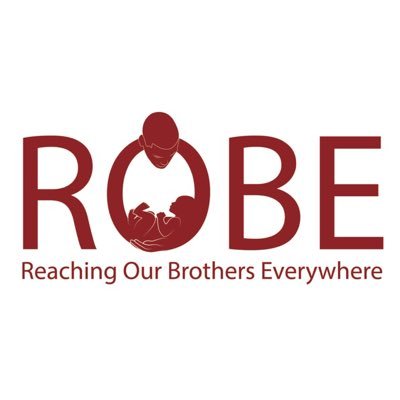
Part I: Meet ROBE. An introduction to Reaching Our Brothers Everywhere with founders Wesley Bugg, JD, and George Bugg, MD.
Part II: Meet ROSE: Reaching Our Sisters Everywhere, the inspiration for ROBE. ROSE’s Chief Empowerment Officer, Kimarie Bugg, DNP, shares her story of transforming her 40 year nursing career into a diversity, equity and inclusion nonprofit to train health care professionals, breastfeeding consultants and families.
Part III: Black Fathers, Cultural Myth and Reality. Listen to stories of ROBE’s Wisdom Council members, Calvin Williams and Kevin Sherman, below.
Part IV: The Fatherhood Narrative: What Support Circles Reveal About Fears and Hopes. An interview with Carl Route, Jr, and Gregory Long, Wisdom Council Members of ROBE.
Subscribe to Kindred’s newsletter and don’t miss the upcoming interviews for the Black Men, Breastfeeding, and Social Justice Series
Part II: Meet Kimarie Bugg, DNP, RN, MPH, IBCLC
A national treasure for her leadership in breastfeeding and equity education, in this Kindred interview, Kimarie Bugg, DNP, RN, MPH, IBCLC, shares her story of discovering her love for caring for babies and mothers as the granddaughter of a Southern lay midwife who cautioned her to become a “real nurse” when she grew up. Born in South Bend, Indiana, Kimarie’s childhood visits to her grandmother in Arkansas shaped her understanding of racism with first-hand experiences not found in South Bend, like moving off of sidewalks with her grandmother to let white people pass.
In 1978, Kimarie became a mother of twins and a registered nurse while living in the state of Texas. In her Kindred interview, she shares her experience of calling La Leche League for help with breastfeeding her twins as a young mother and discovering the organization’s leaders and local hospital, at that time, did not return calls to “people who lived in my area code.” Her challenging and isolating experience breastfeeding twins inspired her to help mothers until, as a nurse, she became known as the “breast nurse.”
Her pursuit of a doctorate in nursing, 40 years of breastfeeding education, and integration of her early and ongoing awareness of racial disparities, led her to found Reaching Our Sisters Everywhere, ROSE, in 2011. A recipient of a million-dollar W. K. Kellogg Foundation grant, ROSE is tasked to: “Address inequities in breastfeeding rates among African American women by creating communities across the United States who promote and support breastfeeding through culturally appropriate capacity building of community members, public health professionals and healthcare systems.”
In her recent president’s letter to ROSE members and supporters, Kimarie shares, “Through our passion for eliminating the disproportionate negative impact of [Black] maternal and infant mortality, breastfeeding initiation and duration, and all the maternal, paternal and child health systematic injustices to which we have dedicated our lives, we are labeled hostile by some. To them, we say, ‘we are not hostile, we are passionate about disrupting the political determinants of health’ in the communities where we live, work, play and worship…
“We will not be satisfied with just Black representation. We listen to Black mothers. And we will fight for their rights to have true power in the information, care and engagement they receive from institutions and systems. This is our calling and our covenant to you. We will continue to address the root cause of social injustice and make a culture shift towards an anti-oppressive culture. And we will actively engage it until we can run no more, at which point we will gladly pass this baton of passion, this birthright, this struggle, to the next-gen mothers, the next-gen servant leaders, who will carry our power further than I can imagine. Our magic is in our fears and tears, our sisterhoods and our LOVE.” (Emphasis editor’s. Read Kimarie’s letter from the president here.)
ROSE’s first years as a nonprofit focused on eight states in the South, and in later years, the organization utilized these insights and professional training programs to restructure the nation’s organizing hub for state and local coalitions: the United States Breastfeeding Committee, USBC. The result of this restructuring is a transformed and dynamic nonprofit, a website rich in educational materials, ongoing educational webinar trainings for state and local organizations, and the visible impact of transforming the USBC’s annual conferences into a vibrant, progressive and diverse activist networking celebration.
In their 2016 Legacy Award statement, the USBC writes of Kimarie, “Her collaborative power and willingness to help everyone around her grow, to ‘know better and do better,’ has significantly contributed to the changes at the USBC, and our strides to be a welcoming and more inclusive organization. As Kim likes to say, ‘being at the table changes the conversation.’ The leadership of the USBC thanks Kim for being at the table, breaking bread with us, and having a rich and transformative conversation that now includes many people and communities around the country.”
With our world in crisis from the personal to the planetary, and our future as a species uncertain, Kimarie Bugg’s story shows us how one person found the “magic” in her own “fears and tears” and transformed her trauma into a passion and vision that sparked real cultural change. I invite you to join me in sitting gratefully at her feet around our virtual campfire here on Kindred and listening, deeply, to her story.
Click on the title below to go to that section:
- Falling In Love With Babies And Mothers
- CRASH: Culture, show Respect, Assess/Affirm differences, show Sensitivity and Self-awareness, and do it all with Humility
- Crying, Stomping and Hugging: Behind The Scenes Of Organizational Transformation
- Nursing Narratives: Training Professionals, Health Care Workers and Nonprofits in Equity Awareness#
- Creating Bold, Brave, Safe Spaces: Inviting Our Humanity Into The Room
- Putting Our Humanity On The Agenda
The “Magic Of Our Fears And Tears” – An Interview With Kimarie Bugg, DNP, RN, MPH, IBCLC
TRANSCRIPT EDITED FOR CLARITY
Falling In Love With Babies And Mothers
LISA: Hello everyone and welcome to Kindred. This is Lisa Reagan and today I’m talking with Kimarie Bugg, and she is the Chief Empowerment Officer and Change Leader at Reaching Our Sisters Everywhere, also known as ROSE. Welcome and thank you for coming. Let’s start with your background and where you were coming from long before you started ROSE.
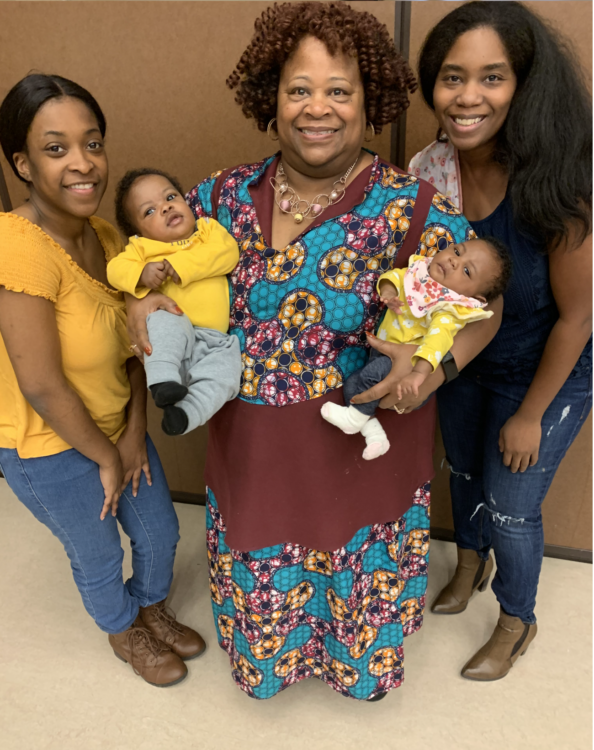
KIMARIE: Thank you for having me. I was born and raised in South Bend, Indiana. I know most people didn’t know much about that until very recently when the former mayor ran for president but also the University of Notre Dame is there.
During the summers growing up I was allowed to go with my father, who was from Arkansas, to visit his mother. His mother was in Marianna, Arkansas, and she was a lay midwife. At the age of 12, my paternal grandmother allowed me to help her with women coming to her home to labor and deliver their babies. My task was to take the baby and clean the baby up. So, that’s how I fell in love with babies. Also, at the time my grandmother expressed to me that she wanted me to be what she called a “real nurse.” That started me on a path to nursing, and again, at the same time, my mom in Indiana was an LPN, a licensed practical nurse; but that’s really how I came to fall in love, especially with babies. And I’ve been a perinatal nurse for the last 40 years or so, but also working with labor and delivery and babies.
LISA: When did you first decide that there was a need for an organization like ROSE?
KIMARIE: The very first job that I had was the same year, 1978 I became a mother, a wife, and a registered nurse all in 1978. What happened during that time is, when I had my children I was living away from my family. In my family, everyone that had babies were breastfeeding, but they were in Indiana and I went to school in Texas and got married in Texas In Texas, I did not know anyone that was breastfeeding. After I had my babies, I attempted to call La Leche League and in that time, you had phone numbers that indicated where you live.
A lot of people don’t understand that now, but if your number was 284 you knew exactly where that house was, on what street, on what side of the tracks it was. So, I never got a call back from La Leche League because I lived on the side of the tracks where people who look like me lived. – Kimarie Bugg, DNP, RN, MPH, IBCLC
A lot of people don’t understand that now, but for example if your number was 284 you knew exactly where that house was, on what street, on what side of the tracks it was. So, I never got a call back from La Leche League because I lived on the side of the tracks where people who look like me lived; is what my beliefs are.
I truly struggled with breastfeeding. Also, I had just graduated from nursing… I had twins too, let me say that. I did not find out until 11 days before they were born that there were two of them. In 1978 they weren’t doing all of those tests to find out about gender… gender reveals, and things. I struggled trying to breastfeed them and, as I mentioned, I was also a nurse and I had started working on pediatric inpatient and was toeing the party line when women asked about help with breastfeeding. I was told by the nurse that preceeded me that “we didn’t have time for that.” So, I didn’t learn much about breastfeeding or anything in nursing school. I didn’t learn anything when I went to the pediatric inpatient in Temple, Texas. I won’t name the hospital, but it is currently designated as Baby Friendly and I was really happy to see that, but I didn’t get any help with breastfeeding there, and I couldn’t get any assistance in the community.
I decided at that time that I didn’t want other women to be as miserable with their breastfeeding journey as I was, so I started to learn about how to help other women with breastfeeding on the floors. Very quickly I became known as the “breast nurse.”
I moved from Texas in 1980 to Atlanta, Georgia and came to a hospital here and was also known as the “breast nurse” because when people had questions with breastfeeding everybody would sort of turn and look to me. So, I just started really reading and trying to figure things out and it just kind of worked. It was more of a passion of doing the breastfeeding, lactation management work and still being a pediatric nurse practitioner and working with sick children, as I also did. It was an extreme passion for many years.
Then I was laid off from Emory School of Medicine as a nurse practitioner in 2011 and that’s when I decided with a couple of colleagues that what we really wanted to do was live by our passion and to truly put together an organization that would address the breastfeeding disparities we were seeing in the different ethnicities, because, again, the breastfeeding gap of “who started” and “who continued” breastfeeding was about 30% difference in black and white communities and the gap was not narrowing. Many of the people we saw were breastfeeding so we did not feel those statistics were very correct, but we wanted to see what was going on with those. That’s why we got together and started ROSE.
CRASH: Culture, show Respect, Assess/Affirm differences, show Sensitivity and Self-awareness, and do it all with Humility
LISA: Over the years you’ve served state and national breastfeeding organizations and have held this topline view of what’s going on. Your work at the United States Breastfeeding Committee, USBC, for example, seemed to come during a time when there was a tremendous transition in that organization. What was your vantage point from there and what did you see happening?
KIMARIE: It actually started probably in the early 1990s because we got a grant from HRSA to train healthcare professionals in the eight southeastern states. We were a team of a physician, myself as a nurse, and a dietician, and we were doing training and meeting other health care professionals in Kentucky, Tennessee, Alabama, and both the Carolinas.
At that time, we were also realizing that healthcare professionals did not have lactation management training, so a lot of their information was coming from a place of, “We are an expert of nursing medicine and you know taking care of diabetic children and mothers, but we don’t know anything about breastfeeding”. So, they were kind of not helpful at all in trying to help families to breastfeed. That is a lot of what we learned and what we started to address. That experience really kind of stayed with me, knowing that if healthcare providers don’t know anything about breastfeeding and they’re not helpful that will really destroy the whole initiation and support that families could get if they run into any problems at all.
When we had this opportunity to put this organization together, one of the reasons why it was different than a lot of things that were out was our connections to physicians, nurses, and dietitians that we had met over the years that were truly in leadership positions in all of these states We were able to call on them to say, “These are some things that we need to do to improve breastfeeding rates, duration rates in especially the southeastern states.” That’s some of the things that we got together early on.
The USBC is connected to all 50 states, Washington, D.C. and the territories, and was directly working with them to develop resources. In the beginning, ROSE received a grant from the W. K. Kellogg Foundation and one of their “must dos” was to work with the USBC. So, I decided to run for the USBC board of directors and I became the first African-American woman on the board of directors for USBC.
One of the things that we instituted at that time was what we called the CRASH Committee (Culture, show Respect, Assess/Affirm differences, show Sensitivity and Self-awareness, and do it all with Humility) which was the diversity, equity, and inclusion, but we started with those as the soft conversations before we could get to what they are truly doing a phenomenal job of now, which is truly talking about racism, structural and systemic racism.
Kimarie Bugg, DNP, RN, MPH, IBCLC
At that time, the USBC was going through lots of change and it was the great time for ROSE’s work in 2013, pretty much right after getting started in 2011. As a board of directors, we really thrashed out policies and procedures and programs and how to restructure the breastfeeding coalitions in all of the states and how to restructure the USBC, who has a lot of reference power and authority because they work with the federal government, the state governments, and the local coalitions. We had the opportunity to really work on a lot of that structure with the board of directors, which led to some phenomenal change.
One of the things that we instituted at that time was what we called the CRASH Committee (Culture, show Respect, Assess/Affirm differences, show Sensitivity and Self-awareness, and do it all with Humility) which was the diversity, equity, and inclusion, but we started with those as the soft conversations before we could get to what they are truly doing a phenomenal job of now, which is truly talking about racism, structural and systemic racism. So, we started with the easy conversations with the DEI (diversity, equity, inclusion), and now they have definitely moved on. That organization has been really phenomenal and at the forefront of lactation support in the landscape of this country.
LISA: Yes, they have been. What I would like to talk about for a moment is, the conflict within the breastfeeding community between white professional women and breastfeeding activists. Did you witness from your vantage point there what I had witnessed in 22 years of being a breastfeeding advocate, that there’s all kinds of splintering that goes on within what you would think from the outside would be a movement, holding hands and everybody is working towards the same goal advocating for breastfeeding. But then you actually get in there, as an activist, and you find that professionals, who tend to be mostly white, are very territorial.
Over the years, I have seen that trying to bring together professionals and activists and moms, and different groups in a cohesive way was very difficult. I was talking to your son, Wesley, and your husband, George, who are the founders of ROBE, Reaching Our Brothers Everywhere, and Wesley was saying they were surprised that they were not necessarily welcome into the breastfeeding movement because of the territorial nature of some professionals in the field who just didn’t want the competition. I found that to be remarkable, that he also noticed what had been my experience.
KIMARIE: That is very true, and I guess one of our major strengths is the fact that we have just been unapologetically who and what we are. And when we address the issue, the concern, it’s always been through our own lens and not expecting or even caring truly about how other folks felt. But then let me premise this with the fact that, early on, I talked about the grant that we received. In that grant we were trained by the mothers of the lactation community and Dr. Ruth Lawrence, Dr. Audrey Naylor, Dr. Miriam Labbok, so the heavyweights, the folks who wrote the articles, the folks who wrote the books. And they were completely and totally the wind beneath our wings.
These were older white women who were not in for all of that in-fighting and all of that stuff. They gave us a lot of guidance on directions to go and things that needed to be done and how to do it, and also were instrumental in getting us into rooms that we would not have been able to get in on our own. We are truly, truly thankful and grateful for their assistance, but with that said also being a nurse – nurses are my tribe, are wonderful and territorial also, and so you kind of come to expect a lot of that sometimes.
We knew that was out there, even with, for example, the IBCLC exam. I took the exam in 1987 and I think the first exam was 1986, and I was in IBCLC for five years, and there was no return on investment for me and my community and the things I wanted to do. So, I didn’t retake the exam and had no need for it. However, recently I did because we’ve come to a different point and again that was five years after 1987, and now here we are 2020 and a lot of the young black women that I work with are very interested in being IBCLCs and so I did retake the exam so that I could help to mentor them.
Yeah, it’s definitely been like that, and that’s one of the reasons why I got into the USBC, because one of the Constellations and Learning Communities that they have is lactation support providers, and that constellation includes peer counselors all the way through breastfeeding medicine physicians. My husband was a charter member of the Academy of Breastfeeding Medicine and that was because those women that I mentioned earlier are the founders of the American Breastfeeding Physicians and so they also got him to be a charter member too.
We’ve just been where the action was, as far as working through the lactation landscape, and being there has just made a difference and continue to help us get into the rooms and the places we needed to do and really push our agenda forward. And that was the other thing, they didn’t feel threatened because of the population and the target that was out concern, and they had no intention or didn’t care at all about working with our specific target population.
Crying, Stomping and Hugging: Behind The Scenes Of Organizational Transformation
There was a lot of crying and stomping and walking out of the room, and hugging, and more crying. Lots of that. There were times where folks truly wanted to walk out. There were times where feelings were hurt and toes were stepped on. It was difficult for, you know, the oppressor never wants to release power, and especially when you have no idea that you’re holding the power. It’s the white privilege. – Kimarie Bugg, DNP, RN, MPH, IBCLC
LISA: I remember the USBC’s 2014 national conference, the focus on building these cultural bridges. The conference featured lots of different presenters that were so inspirational and so moving who taught us, “This is how we built our bridge into our Native American community or the Samoan community.” The conference illustrated that the bridge has to be someone in that community that understands the language of the community, the needs of the community, what’s really happening on the ground, that is trained and given resources.
Then there is this process that has to happen with trainers needing to listen to the person who returns from the community. There needs to be this reciprocal teaching that’s going to happen of learning about the racism, oppression, inequity, implicit bias, the structural racism. This listening has not been something that white professionals have been receptive to.
But something happened in the USBC world because the 2014 conference and the 2019 conference were two different conferences – and the change was remarkable. It was just remarkable. The energy was the energy of activists, and the anger of activists and the room was very dynamic and diverse. Then ROBE spoke at the very end of the conference. I had never heard black men advocate for breastfeeding in this way.
That change, right there on the ground, that it really happened was such a wonderful, miraculous event to witness. I say that because I’ve been around for a long time and I can be pretty cynical, but that change was real. Can you tell us a little bit about what was behind the scenes that made it possible?
KIMARIE: There was a lot of crying and stomping and walking out of the room, and hugging, and more crying. Lots of that. There were times where folks truly wanted to walk out. There were times where feelings were hurt and toes were stepped on. It was difficult for, you know, the oppressor never wants to release power, and especially when you have no idea that you’re holding the power. It’s the white privilege.
So, we had to have those conversations, and when you know better you do better. I talk a lot in my little presentations about Johari’s Window. I know what I know, I know a little bit about what I don’t know, and I know nothing about what I don’t know. So, if something has always been this normalized and you do not see in your base anything about slavery and Jim Crow and redlining and about toxic dumps being put in neighborhoods and then segregation and all of those types of things. If you’ve never had any need to focus on those things, then again, it’s like Pollyanna, you just have those rose-colored glasses and that’s it. For women or people of color, we’ve never had that privilege and so this was a time when we got people into the room to have those conversations just basically to help people to understand: this is my reality.
If you’ve never had any need to focus on those things, then again, it’s like Pollyanna, you just have those rose-colored glasses and that’s it. For women or people of color, we’ve never had that privilege and so this was a time when we got people into the room to have those conversations just basically to help people to understand: this is my reality. – Kimarie Bugg, DNP, RN, MPH, IBCLC
When I was eight years-old walking in downtown Helena, Arkansas with my grandmother, white men were coming down the sidewalk and we had to get off the sidewalk into the street, and I’m trying to figure out at eight years-old what the hell is going on here, because in Indiana that’s not something that had ever happened to me. After being belligerent about it, my grandmother made a vow then never to take me downtown in west Helena, Arkansas again because I did not understand what was happening and she didn’t know what would happen to me. So, it’s about putting it out there and seeing who was willing to listen and at least hear it and then start to make some small inroads into why and how this has happened like this and then what is it that we can do to change.
One of the speakers that we had come to present to us early on was Dr. Joy DeGruy. Are you familiar with her? She does this phenomenal presentation on Post Traumatic Slave Syndrome. It is amazing. So speakers like that and Dr. Camara Jones who does another presentation on health equity and achieving health equity and talking again about the different types of racism, and Dr. David Williams who’s at Harvard and has done some phenomenal economic presentations on the differences in the wealth gap in African Americans and white people. My dad, for example, when he came home from the war was not able to get a GI loan because he was black. A lot of people don’t even understand that.
Until you understand or are presented with the realities, then you’re not really expected to be willing to make these changes. Some people after addressing these concerns, were not able to make these changes, but a majority of the folks were. That’s why it took several years, but they have truly made a phenomenal transition.
Nursing Narratives: Training Professionals, Health Care Workers and Nonprofits in Equity Awareness
The staff asks us all the time, how do you engage “these women”, and I’m doing my air quotes because that’s code for women of color, African American women, Hispanic women. When they say “these women” you know who they’re talking about. Working on those codes, working on their biases, helping them to understand. – Kimarie Bugg, DNP, RN, MPH, IBCLC
LISA: There’s a very large body of science and research into how nonprofits have been bastions of white privilege minimally and white supremacy outright in some cases because of the boards being white, and monied, and just staying on forever, like you said – they don’t release power, they hang on to it and don’t make efforts to expand and change, invite board members outside of their circle. So, that again this ROSE training was implemented at USBC, and it looks like it is trickling down to different organizations. Can you give us and idea of what a ROSE training for professionals would look like?
KIMARIE: The bottom line is to help folks to understand there’s a lot of things that were not true that we learned growing up and that our implicit bias leads us to believe in a lot of stereotypes that are not true. So, we need to look at what it is that we should do, especially as professionals, and to make sure that we are helping the families that we serve reach health equity. That’s all it’s about. I can’t really talk about the love of Christ like I would like to in spots like that, so what I have to just talk about is the fact that we are called in our professions to serve, and in order to do that we have to look at our own biases and get those out of the way.
One example is how culturally inappropriate it was for so many years as a nurse in postpartum areas: most of us would line up the ice buckets and take them to the mother’s rooms when we were serving different populations of women, and that it is insulting to Asian women, to give them a bucket full of ice and water right after they have a baby. That is culturally inappropriate because they only drink hot stuff and hot foods because of their culture. We would set those pitchers of ice water in there and that offended them. So, it is imperative we learn what is offensive, and it’s not about us changing who we are, it’s just about while we are with certain groups and people and organizations that we act appropriately.
In the African American community, for us, it’s all about relationships. What we find a lot of times in the hospitals is they will say things like, “Well, we have these breastfeeding support groups for the NICU mothers and none of the black mothers ever come.”
And so I say, okay, “Tell me about how you advertise or how you invite them.”
“Well, here at the clerk’s desk there’s a flyer. There’s a piece of paper on the wall that says Breastfeeding Support Group at 10 o’clock every Tuesday morning.”
To help them to understand that that is offensive and not acceptable to black women is something that is easy for us to do. Our community is all about building trust in relationships, because in this country for so many years we didn’t have that. In order for me to want to participate in something like that you’d have to come to me and ask. “Hey, Mrs. Jones (the mother of this 28-weeker), there is a breastfeeding support group that we would love for you to come to and this is the time and these are the dates.”
Then you have a much better time, or it’s more possible for you to get that woman to come and to participate. So many different little things like that could make a difference. The staff asks us all the time, how do you engage “these women”, and I’m doing my air quotes because that’s code for women of color, African American women, Hispanic women. When they say “these women” you know who they’re talking about. Working on those codes, working on their biases, helping them to understand. That’s one of the things that we’ve done a lot of in our organization: we bring the equity to projects and programs and help folks to really engage their target populations because a lot of times these are folks with grants and programs and projects that they need to infuse into the communities that they know absolutely nothing about and so part of what we want, of course, is for breastfeeding rates and initiation to be increased. If they are legitimate, we are definitely willing to help to facilitate a lot of that.
It is just ongoing to help folks to learn about cultural humility, what Dr. Jane Murray talks about. You’ll never be culturally competent in someone else’s culture; however, you can continue to learn. It’s a lifelong process and if you do at least have the cultural humility to ask, “How is it that I can serve you and make sure that you reach your specific breastfeeding initiation and breastfeeding duration goals?” What the CDC has shown is that 60% of women who start breastfeeding don’t meet their goals, and I’m willing to say that it’s higher than that in the African American community for many reasons, many barriers, many challenges. But, that’s a really sad commentary that 60% of women are not meeting their goals.
LISA: Yes, it is. And they do set the goals in the beginning; we know that. It’s just all the hurdles in between.
KIMARIE: Absolutely. And one of the biggest hurdles had been getting out of the hospital successfully breastfeeding. Now with the Baby-Friendly Hospital Initiative being funded by the CDC, the number of Baby-Friendly Hospitals has tripled since probably about 2011, right when we were starting. That was the first initiative that took 90 hospitals through the Baby-Friendly process. Now there are over one million babies that have been born in Baby-Friendly Hospitals, and there are like 600+ Baby-Friendly Hospitals, where in 2010 it was in the single digits, probably.
Creating Bold, Brave, Safe Spaces: Inviting Our Humanity Into The Room
That safe space is something that needs to continue to happen, but we need to have bold spaces or brave spaces now, where I can truly bring out the fact that, “Yeah, in our family there are still these things that are going on, but I want to do better so I want to know about this in the African American community.” – Kimarie Bugg, DNP, RN, MPH, IBCLC
LISA: You’re talking about relationships and how important relationships are in the African American community. The first time I heard about Jenny Joseph, who is a British midwife that came to the United States and set up practice in Florida, I kept hearing about her fantastic results with her patients and how their rates of maternal morbidity were so low compared to national rates. A few years ago on phone conference, I’m listening to Jenny Joseph speak and I’m waiting and waiting for the big secret, the big secret of how she did this. What I don’t realize is my brain is in a white privilege academic thinking mode. I’m waiting for there to be something complicated, and then when she says “it’s relationship we found” to be the key to reduced maternal morbidity. The people coming through her door are seen and they are heard and it is understood that they may have taken three buses to get there, and it’s understood what they have to face to have a healthy baby and the relationship that is built is what makes the difference in the maternal morbidity rates in her clinic.
It was just humbling but it was also frustrating because I’m thinking, “How are you going to do that? How are you going to reproduce that?” I know Jenny’s out there trying to teach people now, how this relationship-building process is reproduced, but this is more than just a cultural shift. This is an internal human heart shift.
KIMARIE: Absolutely yes. She’s definitely one of my favorite people, and she does it with ease because that’s the spirit that she has, but as I teach all the time, it’s about transparency. It’s about owning your thoughts, your concerns. It’s about creating safe spaces and now what I’ve been talking about more is we don’t want to just create safe spaces because we’ve been there for years now. Like Martin Luther King Jr. said, we have the fierce sense of urgency of now, and so we’ve got to push this envelope and we want to have brave spaces. We, ROSE, want to have a room where we can get to and have different people actually talk and ask the questions that they need to ask, their burning questions, and to be able to come out of it feeling good that there are no stupid questions.
For example, we’ve been working on these spaces quite a bit, to have these brave spaces. One of the things that comes up often is, “Why is it that black women get offended when I say ‘can I touch your hair?’” That happens a lot in the African American community. Did you know that, that women come up to us all the time and say, “Can I touch your hair?” That is extremely offensive for black women. That’s good that you ask this question in the brave space. That means that you have noticed that that is offensive and you’re asking why, so those are the types of things we want to do. That safe space is something that needs to continue to happen, but we need to have bold spaces or brave spaces now, where I can truly bring out the fact that, “Yeah, in our family there are still these things that are going on, but I want to do better so I want to know about this in the African American community.”
“Tell me,” somebody asked me once, “is it true that black people do the Electric Slide at funerals and at weddings?” And I had to laugh about it, but it’s just like yes, and they say, “Well that’s just been a burning question on my heart and I didn’t know who to ask.” It was just funny. It’s funny for them, it was funny to me, but it’s true. So those are the kinds of spaces that we need to have to be able to share so that we know.
COVID-19’s Impact on Black Mothers and Community
Birth has already been pretty traumatic in this country for black women because maternal mortality, especially here where I am in Georgia, is higher here than it is anywhere else. Birth is already traumatic and for them to be alone, of course, is just really a lot worse. – Kimarie Bugg, DNP, RN, MPH, IBCLC
LISA: We are in the middle of quarantining for the Covid-19 and you were saying that this moment is highlighting the issue of black maternal mortality because of what is happening. How is that going?
KIMARIE: Some of the stuff that is happening right now is that in places where black and brown women are delivering their babies, the hospitals are deciding to separate mothers and babies just randomly. Because of Covid-19 they’re saying that when women have babies we’re going to separate them, put the babies in the nursery, put the mother in a room by herself so the babies don’t get Covid-19 until the mother has been tested, and you know those tests have been five days long.
The problem that we see, and again this is because of the people who are calling me, and I’ve had calls from six states, is that it’s happening in areas of town where the majority of the women who are delivering at those hospitals are black and brown women. Some of the things that we’ve asked recently is that, this week specifically, that USBC and also Moms Rising address this. There’s also been some guidelines that have come down from the CDC just this week also that addresses this. The American Medical Association is also addressing it. These are all folks that advocates have been calling all week. ACOG has put out a statement just yesterday and there’s an article in the New York Times about this also. But this is what I’ve been working on for the last six days and lots of other people also.
Also, women have been going on to labor and deliver alone because the hospitals are saying they cannot have a support person with them, but I’m being told that was happening a lot in New York. Governor Cuomo addressed that yesterday and said that it would not happen anymore with labor and birth, but that is happening again in many inner city hospitals where women are delivering alone. That is extremely traumatic. Birth has already been pretty traumatic in this country for black women because maternal mortality, especially here where I am in Georgia, is higher here than it is anywhere else. Birth is already traumatic and for them to be alone, of course, is just really a lot worse.
LISA: La Leche League and a number of other breastfeeding organizations have also advocated that you continue to breastfeed your infant during this Covid-19 virus because it is more traumatizing for the child to not be held and nursed and to miss out on that, and those are all up on Kindred if you want to take a look there, kindredmedia.org.
Putting Our Humanity On The Agenda
This gets extremely painful for many of us. I’ve held many African American women in my arms who have lost babies to Sudden Infant Death Syndrome and grandmothers who’ve lost daughters when they were having babies in childbirth, and that takes a toll on you. It takes a toll to be the mother of a black son in America, just always concerned about, are they going to make it home safe, for many reasons? It really felt good for that organization to allow that space so that everyone could go around and check in just for a few minutes, and everybody needs to do that. – Kimarie Bugg, DNP, RN, MPH, IBCLC
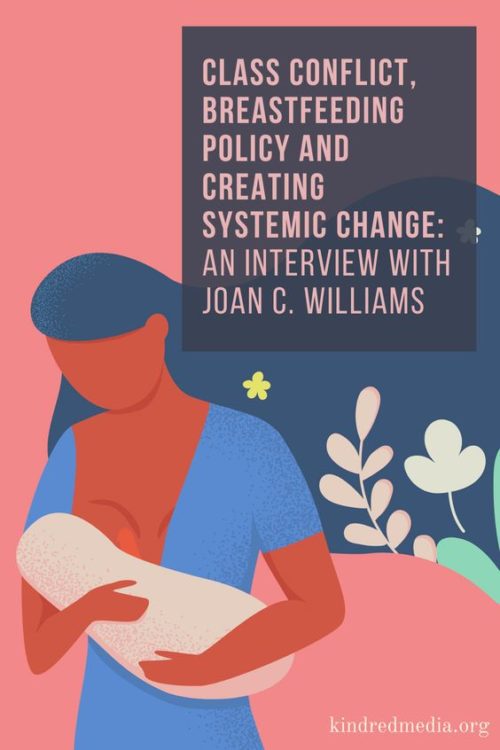
LISA: Let’s go back to safe spaces because I also witnessed something else remarkable last year, and you were there. This past August in San Francisco, you and I attended the Center for Worklife Law Breastfeeding Summit, and this is a part of the University of California at Hastings and this event was about worklife law, of course, but really about language and how to use different words in different states depending upon whether they are Republican or Democrat or super conservative or somewhere in the middle. We found at the conference there is a certain way to speak to people in order to get them to care about breastfeeding and supporting breastfeeding. These are sophisticated activist tools that both were exciting to find but also made me despair, a little.
What were your thoughts about how we have to be careful with our language in order to advocate for breastfeeding depending on geographically where we are? And, I know you know what moment I want to talk about, because there was another moment that we stopped the conference and we went into more human place with each other.
KIMARIE: I think that is something that we had to do in the past. It has changed dramatically, but I would definitely say that geography matters. The way that you talk about it in California where breastfeeding rates are 95% are very different from how you can talk about it in Mississippi and Louisiana that have the lowest rates in the country. It has gotten a lot better in the last five years because the federal government has been very involved with women’s health and HRSA (United States Health Resources & Services Administration) in developing language and resources, and also because so many articles and information have been coming out of just about every area also.
LISA: Right, and it is different in these states. You and I are both in the South, so we have an idea. But there was a moment in this summit that for me, was remarkable. I felt like a sacred witness at this moment. I guess you may have to be a Southerner to appreciate this, but there was a moment in the conference – and again this is a very well put together very intellectually driven conference – and something happened and the room shifted and someone in the back raised their hand, and said, “I’m not feeling safe and I think we should go around the room now and ask the women of color if they feel safe, and everyone checked in on their level of feeling safe.” To me that was remarkable. I tried to speak, I tried to contribute but I couldn’t get my voice. I was choking up and I felt like that moment brought our humanity into the room, because we all did the pausing and listening practice that wasn’t on the agenda, but it really did bring the heart into the room, to have that level of consideration for where are people right now. Do you remember that moment?
KIMARIE: I do. I definitely think that it was wonderful. What happened was it was time to move on when we were talking about some things that were really felt deeply, particularly they were felt by women of color. What was on the agenda move forward but then again as you mentioned someone in the room said, “But we’re not really feeling easy and good with where we are with this last agenda item.” So, it felt good to be able to jump out of the ivory tower and to recognize that everybody truly had feelings and concerns and we weren’t going to move on without at least addressing those, or at least letting someone say something.
There were some tears in the room because some people specifically asked what do you have to say, because they felt that there was some serious emotion in their faces. It was a great time. It was good. It would be fabulous for more meetings to be like that. Again, when people are able to get in touch with how they’re feeling in order to affect policy, that’s going to impact so many other people.
This gets extremely painful for many of us. I’ve held many African American women in my arms who have lost babies to Sudden Infant Death Syndrome and grandmothers who’ve lost daughters when they were having babies in childbirth, and that takes a toll on you. It takes a toll to be the mother of a black son in America, just always concerned about, are they going to make it home safe, for many reasons? It really felt good for that organization to allow that space so that everyone could go around and check in just for a few minutes, and everybody needs to do that.
We need to put time into these agendas, and especially at times like this with this Covid-19, where we can truly say to people, “How are you really feeling?” There was a woman that I met many years ago, her name was Bobbie Avery, and she said to me one day, she held my hand and said, “How are you doing?” and I said, “I’m doing fine, yada, yada, yada,” and she held my hands and she looked in my eyes and she said, “Now, how are you really doing?” and I just started to bawl. I just cried and I cried. I’m like, “I had to run home and put on these high heels and this skirt and I really wasn’t finished, and this is happening with my kids, but I know I needed to be here.” And that was my first meeting, but she made me feel so safe that I just had to come out to her. I have done that over and over and over again because she made me feel so good, and like Maya Angelou said, “You don’t remember what people say, you don’t remember what they do, but you remember how they made you feel.” So, I want to be sure to make people feel like that too. That’s why I always attempt to take time to truly listen to people and to look at them and to give them some space to be able to talk, and we need to do that these days because there are so many hurting people at home right now.
LISA: What else would you like for our listeners to know about your work before we go?
KIMARIE: Well, just that we are really grateful to be able to do this work. We have had some phenomenal partners, HealthConnect One and Moms Rising, and 1000 Days and especially, of course, the United States Breastfeeding Committee. There’s so many wonderful people, organizations and people in this country who are doing the work in the communities, and we’re really thankful because that’s where we have to go to address issues and barriers and challenges. It is true that we have to have connections to the community, and so I’m really thankful to be able to do that.
LISA: Thank you so much for sharing your story, for the work that you’re doing. I am just blown away that you have been almost a lifelong activist it seems, 40 years, right? Thank you so much. I’ll let our listeners know that you can go to breastfeedingROSE.org for ROSE and breastfeedingROBE.org for Reaching Our Brothers Everywhere, which is also an organization that was created by ROSE. So, thank you so much again for coming on today. I appreciate your time and all you’re doing.
KIMARIE: Thank you so much for having me.
RESOURCES
Kindred’s Equity, Diversity, and Inclusion Resources
Kindred’s Features on Equity, Racism, White Supremacy and the Dominator Culture
Kindred’s Black Mothers and Fathers Resources
What Is Equity?
Equity has three interwoven components: a lens, a mirror, and an outcome.
- It is a lens through which we view the world to inform and guide the design of our strategies and activities to build a “landscape of breastfeeding support.”
- It is also a mirror through which we view ourselves and our organizations, examining our internal structures, culture, and policies and their impact on how the lens is applied and the outcome achieved.
- Lastly, it is the outcome we seek to achieve, i.e., equity is realized when life outcomes are equal, in a statistical sense, regardless of one’s identities.
Equity work can take the form of actions designed to address historic burdens as well as to remove present-day barriers to equal opportunities. It can be accomplished by identifying and eliminating systemic discriminatory policies and practices, but also by transforming structures towards access, justice, self-determination, redistribution, and sharing of power and resources. Above all, it requires an inclusive approach that maximizes engagement of the communities impacted.
Allegories on race and racism, by Camara Jones, A TEDx Talk
How Racism Makes Us Sick, by David Williams, PhD
Post Traumatic Slave Syndrome, by Dr. Joy DeGruy


